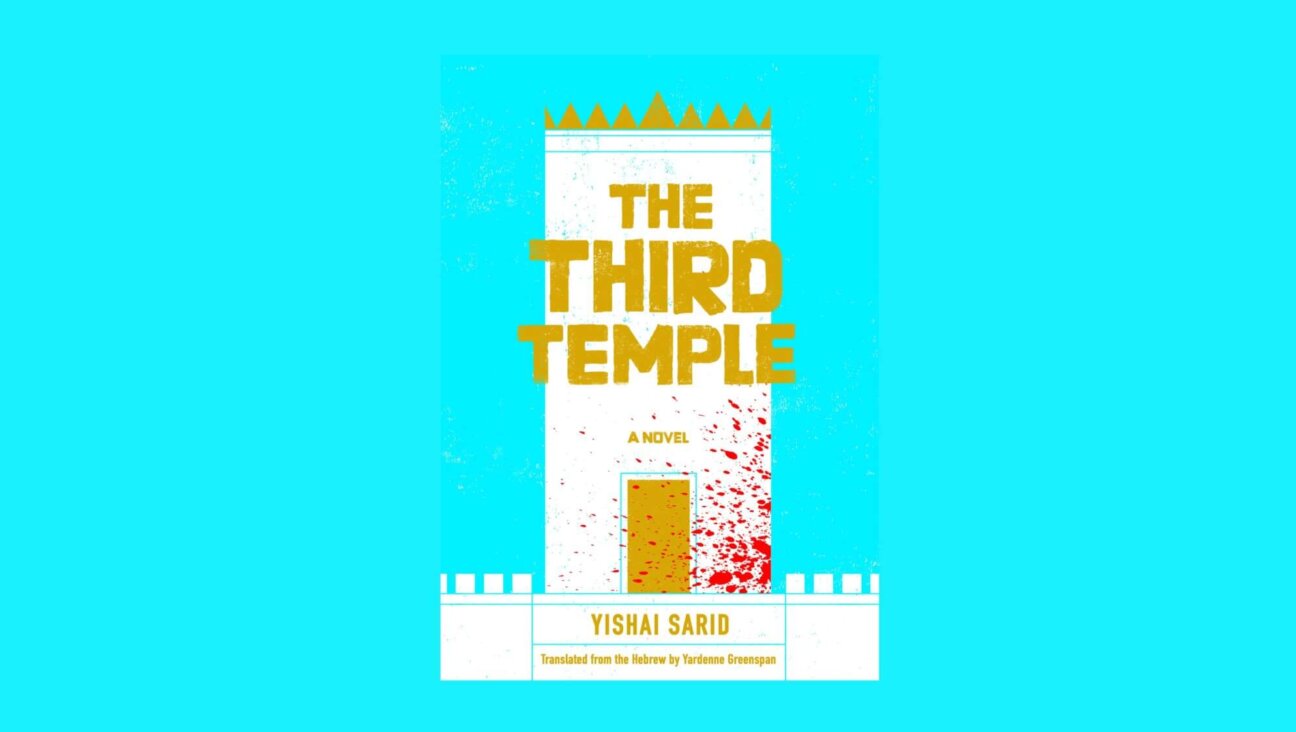Righting Wrongs

Earlier this week, Austin Ratner wrote about Hillel sandwiches and patricide, photography, and Audrey Hepburn. His first book, “The Jump Artist,” is the winner of the 2011 Sami Rohr Prize for Jewish Literature. His blog posts are being featured this week on The Arty Semite courtesy of the Jewish Book Council and My Jewish Learning’s Author Blog series. For more information on the series, please visit:

It goes against my convictions as a novelist to characterize any person as either a demon or a hero; human nature isn’t so simple. It’s the fascist psyche that adores such black-and-white categories: good or bad, Aryan or Jew, friend or enemy, worthy of life or of extermination. But even in a psychologically mature piece of fiction, there are protagonists and antagonists and what divides them from one another in “The Jump Artist,” is precisely their degree of maturity of thought — i.e., their ability or inability to think in a nuanced, non-binary way. Karl Meixner, a fascist, had a lot of trouble thinking that way. Philippe Halsman’s attorney in the second trial, by contrast, refused to see the world in the polarized terms that would later dominate the politics of Grossdeutschland.
In the first trial, Philippe had been defended by a famous Jewish attorney from Vienna named Richard Pressburger. The proceedings lasted just three days and presented little evidence against Philippe, but the jury convicted him with just as little deliberation. “After hardly a half an hour,” a major Vienna paper reported, “the jury foreman pronounces the verdict: the accused is guilty of murder, with nine against three votes.” (Arbeiter Zeitung, “A Wrong Verdict in Innsbruck? A Half-hour Consultation,” December 17, 1928.) By the second trial on appeal, the Halsman family understood the extent of local prejudices against outsiders. When the family hired the defense team for the second trial, they sought out local Gentiles to represent Philippe. The new attorneys were Innsbruckers Paul Mahler and Franz Pessler.
Pessler was born May 13, 1893 in Linz (an Austrian city halfway between Vienna and Salzburg). Halsman describes Pessler as “a very interesting person, a former Jesuit student,” in a letter dated March 23, 1929. He was a veteran of the First World War, described as “young, daring” in Die Wahrheit, a Vienna newspaper, on September 20, 1929. Pessler married a Viennese woman named Martha Lodenbauer, with whom he lived in Innsbruck at 29 Anichstrasse. According to the records in the Tiroler Landesarchiv (Geschäftszahl TLA-0509/1720-2006), they had no children.
Pessler was deeply committed to the defense of civil liberties even as Austria careened into fascism. His passion for justice is reflected in his own account of the trials, “Ein Bild des Prozesses” (“A Picture of the Proceedings”), published in a paperback volume called “Der Fall Halsmann,” issued in 1931 by the Austrian League for Human Rights. (The Austrian League was a sister organization of the French League for the Defense of Human Rights, which had 20 years earlier defended the Jew Alfred Dreyfus following his indictment and false conviction in Paris.) After the second verdict, Pessler continued to fight on Philippe’s behalf for legal redress, and he took part in the effort to obtain a pardon from Chancellor Johann Schober.
The trials affected him on a personal level, as well. He writes in Der Fall Halsmann, pp. 90-91:
[Philippe] left prison as a broken man. His imprisonment has resulted in a lung infirmity. His engineering studies have been interrupted and subsequently cut off. Who can right all the wrongs he has suffered? Even if we succeed in bringing another trial to court, and prove his innocence beyond a doubt, the years of imprisonment and the horrible accusations have taken their toll.
We must learn for the future to be careful with any trial based on circumstantial evidence. In any such future case we must remember Philipp Halsman.
Philippe, in turn, felt he would never forget his attorney. In a letter to Ruth Römer dated January 28, 1930, Philippe writes: “[Dr. Pessler] sat down on the table and began to weep…. I will never forget how much [his tears] moved me, and how much I loved him the moment he wiped the table dry.”
After the Anschluss with Germany, Pessler ran afoul of the Nazis; he was sent to the Dachau concentration camp as a political prisoner on May 31, 1938 and was not released until almost a year later, on April 22, 1939. According to the Tiroler Landesarchiv, he’d been added to the Nazis’ “Schwarzen Liste,” or Black List, because in 1938 he served as public defender for Friedrich Wurnig, an SS officer who was tried for murder; Pessler lost the case and Wurnig was executed. Shortly after Pessler’s internment at Dachau, his wife moved to Eggenberg. He survived the war and died in the same year as did his former client Philippe Halsman: 1979.
Austin Ratner‘s first book, “The Jump Artist,” is now available.
The Jewish Book Council is a not-for-profit devoted to the reading, writing, and publishing of Jewish literature. For more Jewish literary blog posts, reviews of Jewish books, book club resources, and to learn about awards and conferences, please visit www.jewishbookcouncil.org.
MyJewishLearning.com is the leading transdenominational website of Jewish information and education. Visit My Jewish Learning for thousands of articles on Judaism, Jewish holidays, Jewish history, and more.
A message from our Publisher & CEO Rachel Fishman Feddersen

I hope you appreciated this article. Before you go, I’d like to ask you to please support the Forward’s award-winning, nonprofit journalism during this critical time.
We’ve set a goal to raise $260,000 by December 31. That’s an ambitious goal, but one that will give us the resources we need to invest in the high quality news, opinion, analysis and cultural coverage that isn’t available anywhere else.
If you feel inspired to make an impact, now is the time to give something back. Join us as a member at your most generous level.
— Rachel Fishman Feddersen, Publisher and CEO
























